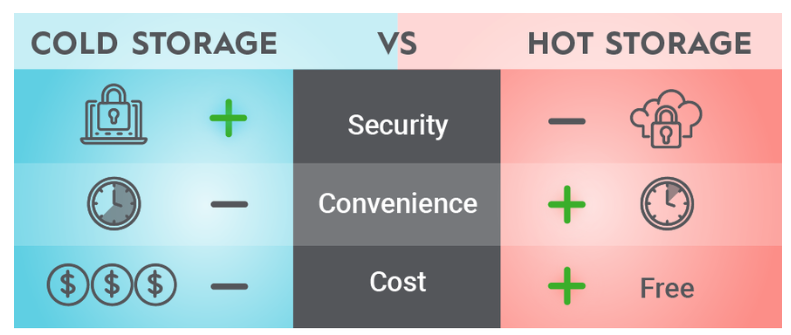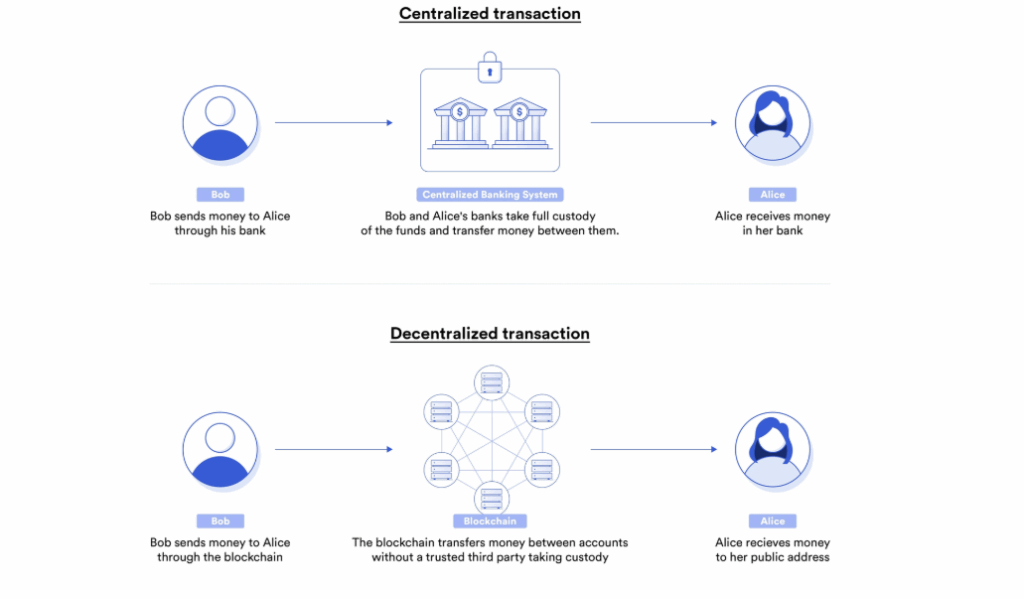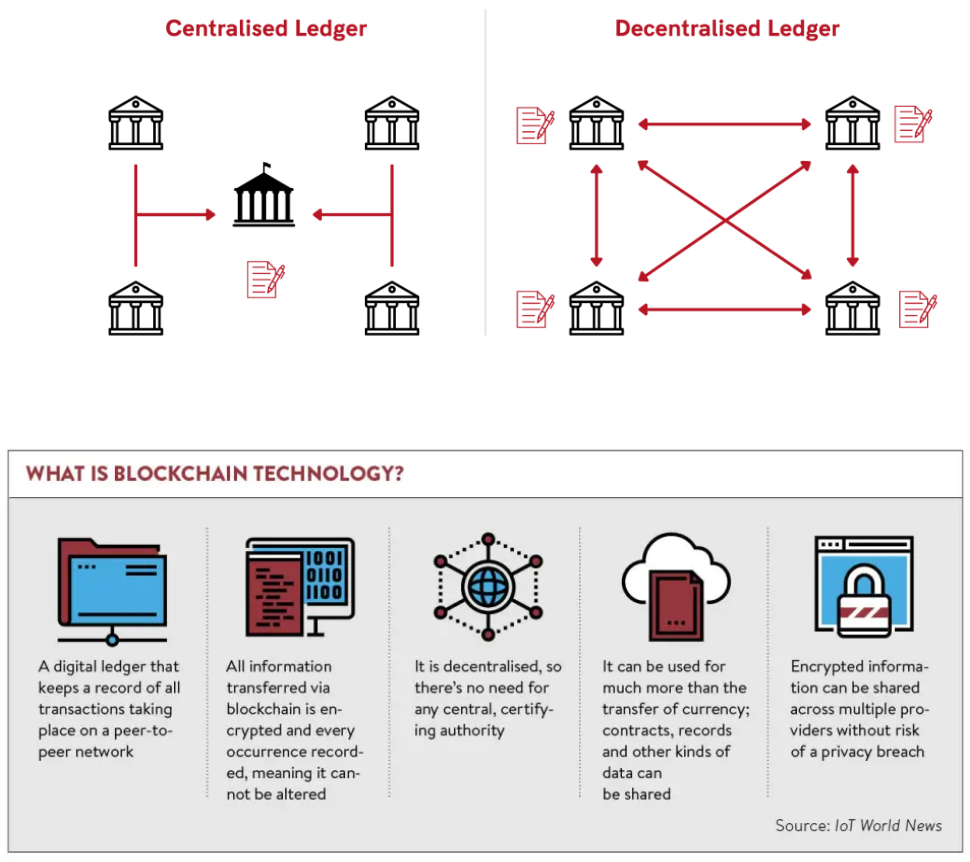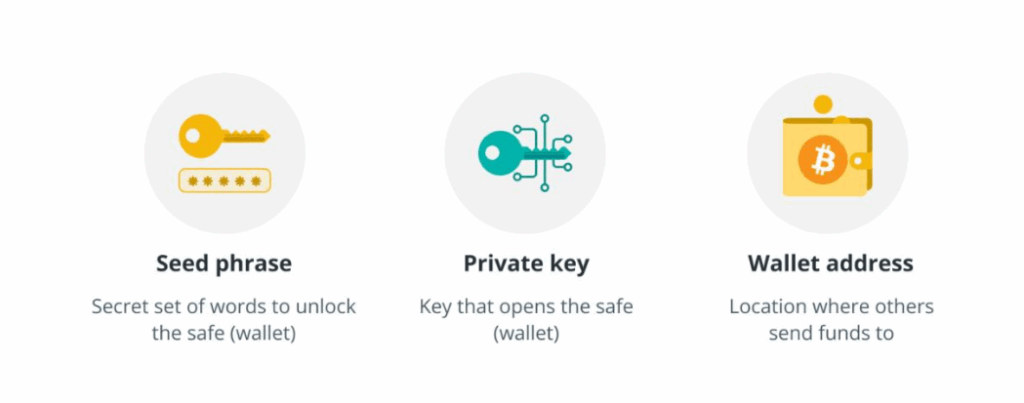A comprehensive guide to Crypto and Blockchain terminology.
This is a resource designed to help you navigate the fast-evolving world of digital assets, decentralized finance, and blockchain technology. Whether you’re an investor, developer, or simply curious about the crypto space, this glossary provides clear, concise definitions of essential terms and concepts you’ll encounter on your journey. Use this guide to build your understanding, make informed decisions, and stay up to date with the language shaping the future of finance and technology.
Airdrop:
A distribution of free cryptocurrency tokens or coins to multiple wallet addresses, often used as a marketing tool to promote new projects or increase user engagement.
Altcoin:
Any cryptocurrency other than Bitcoin. Examples include Ethereum (ETH), Solana (SOL), and Litecoin (LTC).
Blockchain:
A distributed digital ledger that records all transactions across a network of computers in a secure, transparent, and immutable way. Each “block” contains a list of transactions, and blocks are linked in chronological order.
Block:
A group of transaction records bundled together and added to the blockchain at regular intervals.

Cold Storage:
A highly secure method of storing cryptocurrency private keys offline, away from any internet-connected device. This approach protects digital assets from online threats such as hacking, phishing, and malware. Common forms of cold storage include hardware wallets (physical devices), paper wallets (printed keys), and air-gapped computers (devices never connected to the internet). Cold storage is recommended for long-term holders and those with significant crypto holdings, as it greatly reduces the risk of theft but requires careful physical security to avoid loss or damage.
Cold Wallet:
A type of cryptocurrency wallet used for cold storage. It is never connected to the internet, making it immune to online attacks. Hardware wallets are the most popular form, but cold wallets can also include paper wallets and other offline methods.
Consensus Mechanism:
The method by which a blockchain network agrees on the validity of transactions and adds them to the blockchain. Common mechanisms include Proof of Work (PoW) and Proof of Stake (PoS).
Cryptocurrency:
A digital or virtual currency that uses cryptography for security and operates on a blockchain. Examples include Bitcoin (BTC) and Ethereum (ETH).
Crypto Asset:
A broad term for digital assets that use cryptography, including cryptocurrencies, tokens, and non-fungible tokens (NFTs).
Cryptography:
The mathematical science behind securing transactions and data in blockchain system
Crypto Mining:
The process of validating transactions and creating new blocks on the blockchain. Miners are rewarded with new coins for their work.

Decentralized Finance (DeFi):
A financial ecosystem built on blockchain technology that allows users to access financial services (like lending, borrowing, and trading) without traditional intermediaries such as banks.
Decentralized Ledger:
A decentralized ledger is a record-keeping system where transaction data is distributed across a network of independent computers (nodes), rather than being controlled by a single organization. Each participant in the network maintains a copy of the ledger, and transactions are validated through consensus mechanisms like Proof of Work or Proof of Stake. This structure enhances security, transparency, and trustlessness, as no single party can alter records unilaterally. Blockchain technology is the most well-known example of a decentralized ledger, forming the backbone of cryptocurrencies like Bitcoin and Ethereum
Digital Wallet (Wallet):
A software or hardware tool used to store, send, and receive cryptocurrencies. Hot wallets are connected to the internet; cold wallets are offline for extra security.
DEX (Decentralized Exchange):
A peer-to-peer platform where users trade directly using smart contracts, without a central authority
Exchange:
A platform where users can buy, sell, and trade cryptocurrencies.
Fork:
A change or split in a blockchain’s protocol, resulting in two separate chains. Can be a “soft fork” (backward-compatible) or “hard fork” (not backward-compatible).
Gas:
A fee paid to process transactions or execute smart contracts on blockchains like Ethereum.
HODL:
A slang term meaning to hold onto your cryptocurrency rather than sell, even during market volatility.
Ledger (in Blockchain):
A ledger is a digital or physical record-keeping system that logs all transactions within a financial system. In the context of blockchain, a ledger is a decentralized, immutable, and transparent database that records every transaction made on the network. Each transaction is publicly verifiable, and once entered, cannot be altered. This provides trust and transparency in the system, as anyone can audit the transaction history

Market Capitalization (Market Cap):
The total value of a cryptocurrency, calculated by multiplying the current price by the total supply of coins.
NFT (Non-Fungible Token):
A unique digital asset stored on a blockchain, representing ownership of a specific item, artwork, or collectible.
Node:
A computer or device that participates in the blockchain network by storing a copy of the blockchain and helping validate transactions.
Peer-to-Peer (P2P):
A system where transactions occur directly between users without intermediaries.
Private Key:
A secret alphanumeric code that allows you to access and manage your cryptocurrency holdings. Must be kept secure.
Public Key:
An address derived from the private key, used to receive cryptocurrency.
Seed Phrase:
A sequence of words that can restore access to a crypto wallet if lost
Smart Contract:
A self-executing computer program stored on the blockchain that automatically enforces rules and facilitates transactions when predefined conditions are met.
Stablecoin:
A cryptocurrency designed to minimize price volatility by pegging its value to an asset like the US dollar or gold.
Staking:
Locking up your cryptocurrency to help secure a blockchain network and earn rewards, commonly used in Proof of Stake systems.
Token:
A unit of value issued on a blockchain, which can represent anything from currency to assets or access rights within a project.
Total Value Locked (TVL):
The total value of assets deposited in a DeFi protocol or across a blockchain’s DeFi ecosystem.
Trading Volume:
The total amount of a cryptocurrency traded over a specific period, usually 24 hours53.
Wallet:
See Digital Wallet above
Wrapped Token:
A tokenized version of another crypto asset, enabling it to be used on different blockchains

Got a question about this article? Ask the Team at MPC
ASK A QUESTION

GENERAL ADVICE WARNING:
Recommendations and reports managed and presented by MPC Markets Pty Ltd (ABN 33 668 234 562), as a Corporate Authorised Representative of LeMessurier Securities Pty Ltd (ABN 43 111 931 849) (LemSec), holder of Australian Financial Services Licence No. 296877, offers insights and analyses formulated in good faith and
Opinions and recommendations made by MPC Markets are GENERAL ADVICE ONLY and DO NOT TAKE INTO ACCOUNT YOUR PERSONAL CIRCUMSTANCES, always consult a financial professional before making any decisions.

